
THE LEGENDARY BUGATTI 100P racer was a collaboration, begun in the late 1930s, between Italian-French car builder Ettore Bugatti and French freelance designer Louis de Monge de Franeau. The original aeroplane, its development interrupted by the outbreak of World War II, never flew. It now resides in the EAA museum at Oshkosh.
De Monge was an imaginative fellow who designed a number of unusual aeroplanes. If his designs share a single common trait, it is the same sort of sleek streamlining that he brought to the Bugatti project.
The general arrangement of the 100P was somewhat similar to that of the Bell P-39 Airacobra, which was hatched at about the same time. The Airacobra's single 1,100-hp Allison engine was mounted behind the pilot, driving the propeller through a thick driveshaft passing under the seat. The 100P had two 8-cylinder, 450-hp Type 50B automotive racing engines, set one behind the other within the central fuselage. The reason for using two engines, which greatly complicated the design, was that Bugatti was committed to his own engines, and one of them would not have provided sufficient power to drive the aeroplane to an impressive speed.
The engines drove coaxial, contra-rotating props on the nose through long driveshafts passing to the left and right of the pilot. The coolant radiator, located in the aft fuselage, took in air through the leading edges of the horizontal stabilisers and exhausted it through louvers in the wing root fairing.
Often praised as one of the most beautiful aeroplanes ever designed, the Bugatti had a peculiarly "artistic" form, a sort of Art Deco flavour, with a slender, perfectly streamlined spindle for a fuselage and dramatically tapered, nearly triangular wing and tail surfaces. The empennage was in the form of a Y; the short ventral fin housed the tailwheel.
This story is from the September 2022 edition of SA Flyer Magazine.
Start your 7-day Magzter GOLD free trial to access thousands of curated premium stories, and 9,000+ magazines and newspapers.
Already a subscriber ? Sign In
This story is from the September 2022 edition of SA Flyer Magazine.
Start your 7-day Magzter GOLD free trial to access thousands of curated premium stories, and 9,000+ magazines and newspapers.
Already a subscriber? Sign In
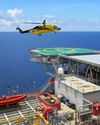
LIVING THE DREAM Part 2: Planning and Pax
Part 2: Planning and Pax
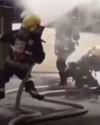
QUEEN AIR TALES
In the early seventies Esquire Airways acquired a pre-owned Beechcraft Queen Air. This top of the range 8,800 lb MAUW model had nine forward facing commuter seats and I flew it as a single pilot operation for several months.

HELICOPTER PILOTS SHOULD UNIONISE
Helicopter pilots are stuck in a 12-month flying cycle. While they will have periods of rest and active rest (performing ground-based tasks and planning ventures) within their work source campaigns, it's not a good situation. They need programmed periods to catch their breath.
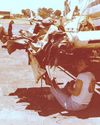
AFTERMATH of the Engine Fire
Iris McCallum continues her stories about her early years with Air Kenya. This month she tells us about the immediate aftermath of her dramatic engine fire and crash, and her subsequent 'getting back onto the saddle'.
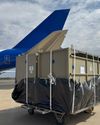
LARGEST EVER RHINO RELOCATION
Specialist air cargo operator ACS mobilised all its skills to successfully complete a very challenging project – the translocation of 39 White Rhino from Namibia to the USA.
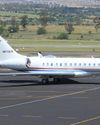
NOVEMBER 2024
November sees strong growth in aircraft registrations with 16 additions, but 10 aircraft are cancelled as exported. The Type Certified additions are a mixed bag.
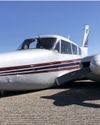
TWINCO FUEL
AIRCRAFT ACCIDENT REPORT
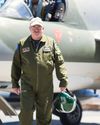
RON WHEELDON'S HUNTERS
RON WHEELDON is a Johannesburg based trademark and IP attorney. He writes, \"My love affair with Hawker Hunter jet fighters started in approximately 1963 when the Rhodesian parliament opening was marked by a fly-by of nine recently acquired Hawker Hunters in diamond formation.
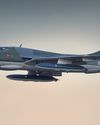
FLYING THE HAWKER HUNTER
Flying a Hunter starts hours before actually walking out to the aircraft. This machine is a legend, but it is first of all about the highest performance machine that it is feasible for a civilian to fly. Flying it is not to be taken lightly.
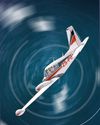
RIGHT SEAT RULES NO. 25 SLOW FLIGHT
Most of us feel a bit edgy when the ASI creeps down within 10 KIAS of the stall. Jim Davis has some hints on how to be comfortable and in control - even when the airspeed is 20 KIAS below the stall.